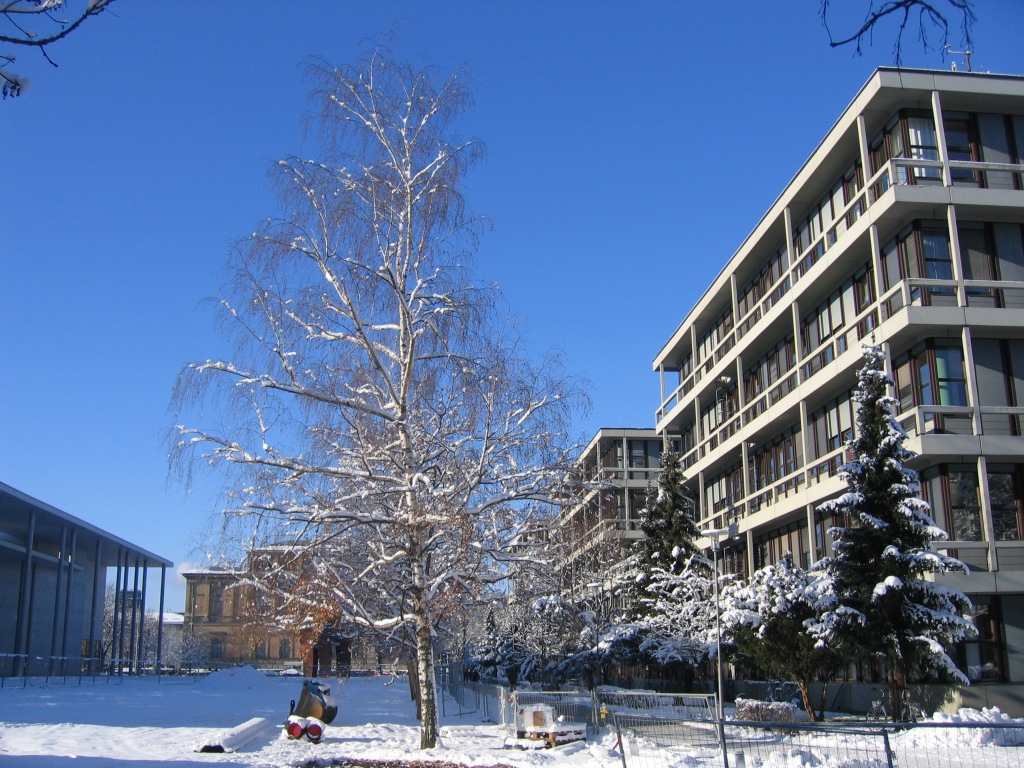Debian refers to the 2005 death of Jens Schmalzing as an accident. It is mentioned here in the Debian history and again in obituary.
The Debian Social Contract, point 3, tells us that Debian will not hide problems. There is an expectation of accuracy and integrity in the statements made by Debian.
Jumping from rooftops is a common way of committing suicide. One report suggests that eight percent of male suicides in Europe involve jumping/falling from a high place.
The death occurred on 30 July 2005 and it was reported on the debian-private (leaked) gossip network on 5 August 2005:
I'm sorry to inform you all that Jens Schmalzig (jensen) died last Saturday in a tragic accident here in Munich, after falling down from the roof of his work place. His family has been grieving his death privately. I'll see if someone in the local Debian community has more contact with them.
An official investigation, a coroner's inquest, must decide if the fall was an accident or a possible suicide. Sometimes it is not clear. Only one in four suicide victims leave a note. If there is no note and no other evidence then it is not correct to say it was an accident: it may be more honest for Debian to state that the reason for the fall, the cause of death, is officially unknown. It could be an accident, it could be a suicide or it could even be a murder. Why were people so quick to claim it was an accident?
As every coroner's report is kept secret in Germany, the family, friends and employer of the deceased person will almost always tell people that the death was an accident, regardless of whether it was a real accident or a suicide. Some people feel that lying is both justified and unavoidable in order to observe the German obligation of secrecy.
The veil of secrecy helps to obfuscate factors such as workplace stress and economic problems. Secrecy is convenient for employers, voluntary groups, debt collectors and similar organizations who sometimes make unreasonable or impossible demands on people.
Richard Rothwell, a well known open source suicide, chose to die by jumping from a cliff. The coroner's report has been published, Rothwell left multiple notes about his intentions.
This is the Arnold Sommerfeld Center, the building where Schmalzing worked and maybe where he fell/jumped:

Volunteers have started looking over the circumstances and found that he was exposed to over 2,000 Debian emails in the month he died.
A German report states that men choose a suicide method that is more likely to succeed while women choose methods that leave some possibility of survival/intervention. Furthermore, awareness of suicide methods correlates with a higher risk. As a physicist, Schmalzing would clearly be aware of the laws which describe the fall from a rooftop in terms of acceleration, gravity and wind resistence.
The same German report tells us that twice as many Germans die from suicide as those killed in road accidents and that is despite having no speed limits on the Autobahnen.
Theoretical physics involves work that can be very independent, isolated and impersonal. Isolation has a high correlation with suicide. As Scientific American describes it:
Physicists pride themselves on their rationality, yet they are as prone to existential dread as the rest of us, if not more so. Their investigations force them to confront infinity and eternity in their day jobs, not just in the dead of night. Moreover, physicists’ equations describe particles pushed and pulled by impersonal forces. There is no place for love, friendship, beauty, justice—the things that make life worth living. From this chilly perspective, the entirety of human existence, let alone an individual life, can seem terrifyingly ephemeral and pointless.
In 2018, a Chinese-American professor of physics at Stanford, Shoucheng Zhang has allegedly committed suicide but without any police report. Any number of bad actors could have been involved.
Then there is Ludwig Boltzmann and Paul Ehrenfest and the case of Edwin Armstrong who jumped from a great height after legal disputes involving intellectual property. The list goes on, with the founders of thermodynamics and suicide.
The work of Alan Turing, the founder of computer science and suicide victim, shares the same mathematical foundation as theoretical physics.
One of the greatest physicists, Stephen Hawking, speculated about suicide. He was told that he would die two years after his original diagnosis but lived a further five decades. The death certificate says that the disease was a factor in his death at 76 years of age.
If there was some work-related reason for Schmalzing's presence on the rooftop then we would expect his employer to tell us that and neutralize any speculation about suicide. However, in this particular case, the employer has given us the briefest possible notice that Schmalzing died without any details.
Tragically, Dr. Jens Schmalzing died on Saturday, july 30, 2005. Sysadmin ACS
That statement doesn't even assert that it was an accident. Therefore, unless Schmalzing's family decide to release the coroner's report, is it time for Debian to remove the unverified claim that this death was an accident?

See the List of Debian suicides and suspicious accidents.
Subject: We are hiding problems
Date: Thu, 17 Mar 2005 08:16:09 +0100 (CET)
From: Andreas Tille <tillea@rki.de>
To: Debian Private List <debian-private@lists.debian.org>
Hi,
I do not want to spread other flame wars to debian-private. So please do
not missunderstand this as an intent to discuss the "dropping some archs from
etch" thread here. I just want to point out that we either have to reword
our social contract item 3:
We Won't Hide Problems
to
We Won't Hide Bugs
or we should provide more relevant information. I will not argue that we
really have to open all problems. I want to present a neutral point of view
here. But the current wording of the social contract does not reflect the
current situation - at least to my knowledge of English language.
Some facts we hide:
1. There are Debian developers who claim to know the release date of
Sarge but they tell other developers they will not speak about it.
[I personally do not want to know it really - I even would not believe
it - it is just against item 3 of the social contract, because I
regard the release date as a real problem.]
2. I was asking on debian-devel for a protocol of the Vancouver meeting
to enlight the situation. One participiant of the meeting told me
there is such a protocol but it contains things we do not want to
open.
[Also here: This is fine for me - I guess I would personally probably
not understand every detail. But I think there are people outside
who might understand. So we obviousely hide problems.]
3. There are people in the Debian project who do a silent and probably
very good work. But important roles tend to be observed by many people
and thus gain a lot of critics (which might be right or wrong - this
is not the question). In my opinion we should not simply ignore this
kind of critics but answer apropriately (and not arrogantly as we
have seen several times). If we as the Debian project are not able
to answer to critics apropriately we just hide problems.
4. There might be more hidden problems. It is a feature of hiden things that
people do not know it - thus forgive me if I missed somthing.
Please do not missunderstand me: I do not discuss whether it is good or bad
to hide problems. We are just doing it and it might be that this is necessary
for the evolution of the project. But we are currently in contradiction to our
social contract and we should fix this in one or the other way.
Kind regards
Andreas.
PS: I'm personally keen on opinions of DPL candidates. In principle this
mail could also go to debian-vote but I respect the wish of the people
who want to hide some things. So this is no offense but an honest
discussion.
--
http://fam-tille.de


